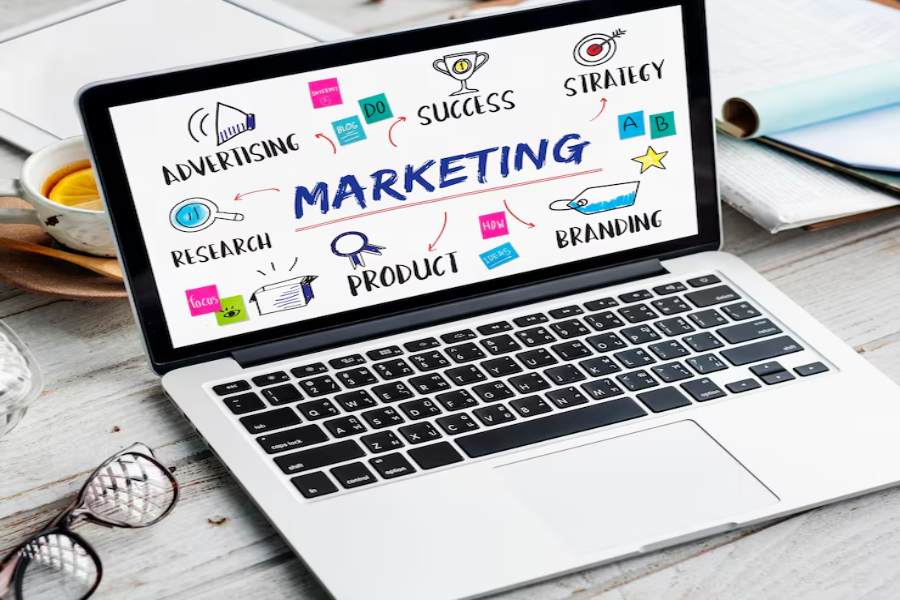Digital Marketing Services for Business Growth and Success

Digital marketing services encompass a range of strategies and tools designed to increase a business’s online presence, drive traffic, and generate leads or sales. These services often include SEO, PPC, social media marketing, email campaigns, and content creation, tailored to meet specific business goals. Choosing the right digital marketing service can directly impact a company’s revenue and growth by targeting the right audience with measurable and data-driven methods.
Many agencies offer specialized expertise depending on the business size, industry, and marketing objectives. From small businesses seeking local impact to larger corporations aiming for comprehensive omnichannel campaigns, digital marketing services adapt to different needs. Understanding the scope and pricing factors helps businesses select an agency that aligns with their expected outcomes.
Experts combine advanced data analytics with personalized customer experiences to deliver effective marketing solutions. These services are not one-size-fits-all but carefully structured to support growth, brand awareness, and return on investment.
Core Digital Marketing Services
Digital marketing services focus on optimizing a brand’s online presence and customer engagement through targeted strategies. Each service plays a specific role in attracting, converting, and retaining customers by leveraging data and customized approaches.
Search Engine Optimization (SEO)
SEO improves a website’s visibility by enhancing its ranking on search engines like Google. This involves technical audits, keyword research, and optimizing content based on user search intent rather than simple keyword stuffing.
Effective SEO includes building high-authority backlinks, improving site speed, and ensuring mobile compatibility. Businesses gain sustainable growth through long-term SEO strategies that drive qualified traffic, improve brand authority, and increase conversions. It prioritizes user experience and relevance to maintain rankings.
Pay-Per-Click Advertising
Pay-Per-Click (PPC) advertising delivers immediate visibility by placing ads on search engines and social platforms. Advertisers pay only when users click, allowing precise budget control and measurable ROI.
Successful PPC campaigns use targeted keywords, compelling ad copy, and strategic bidding. It is especially useful for new product launches or seasonal promotions where quick traffic and leads are required. Proper management involves continuous testing and optimization to reduce costs and improve conversion rates.
Social Media Marketing
Social Media Marketing builds brand awareness and engagement on platforms like Facebook, Instagram, and LinkedIn. It involves creating content that resonates with the audience and encourages interaction through likes, shares, and comments.
This service helps businesses maintain direct customer connections and respond in real-time. Paid social campaigns enable granular targeting based on demographics, interests, and behavior. Consistent social presence boosts trust and drives traffic to other owned digital channels.
Content Marketing
Content Marketing uses valuable and relevant content to attract and retain customers. It includes blog posts, videos, infographics, and whitepapers that establish a brand’s authority and support SEO efforts.
Well-planned content addresses audience pain points and educates potential buyers, fostering trust over time. It encourages conversions by guiding users through the sales funnel with helpful information. Regularly updated content ensures ongoing audience engagement and better search rankings.
Additional Strategies and Emerging Trends
Effective digital marketing now requires integrating various specialized tactics to drive engagement, optimize campaigns, and streamline processes. These methods help brands reach precise audiences, improve performance metrics, and reduce manual workload.
Email Marketing
Email marketing remains a critical tool for personalized communication and nurturing customer relationships. Marketers focus on segmentation based on behavior, demographics, and purchase history to deliver highly relevant messages. Automation enables timely, personalized sequences like welcome emails, cart abandonment reminders, and re-engagement campaigns.
Key elements include responsive design for mobile users and A/B testing subject lines and content to improve open and click-through rates. Compliance with privacy regulations such as GDPR is essential to maintain trust. Integration with CRM systems enhances data accuracy and campaign efficiency.
Conversion Rate Optimization
Conversion Rate Optimization (CRO) aims to increase the percentage of visitors completing desired actions, such as purchases or sign-ups. Techniques include analyzing user behavior through heatmaps, session recordings, and funnel analysis. Testing elements like call-to-action buttons, page layout, and copywriting can significantly impact conversion rates.
Effective CRO relies on data-driven decision-making, using tools like Google Optimize or Optimizely. Prioritizing mobile page speed and simplifying checkout processes reduces friction. Continuous testing and refining help marketers identify what truly persuades their audience.
Influencer Marketing
Influencer marketing leverages trusted individuals to promote products and services. Selecting influencers with engaged, relevant audiences is crucial. Micro-influencers (10K-100K followers) often provide higher engagement rates and authentic connections than celebrities.
Brands should establish clear goals and performance metrics, such as trackable links or promo codes. Transparency and compliance with advertising standards are necessary to maintain credibility. Long-term partnerships tend to deliver stronger brand affinity than one-off collaborations.
Marketing Automation Solutions
Marketing automation streamlines repetitive tasks like email campaigns, social media posting, and lead scoring. Platforms such as HubSpot, Marketo, and ActiveCampaign offer features for segmentation, personalization, and analytics. Automation enables timely interaction with leads based on behavior triggers.
Key benefits include saving time, improving lead management, and enhancing customer journeys at scale. Proper setup and continuous monitoring ensure automation workflows remain effective without causing disengagement. Marketers must balance automation with personalized human touchpoints to maximize impact.
